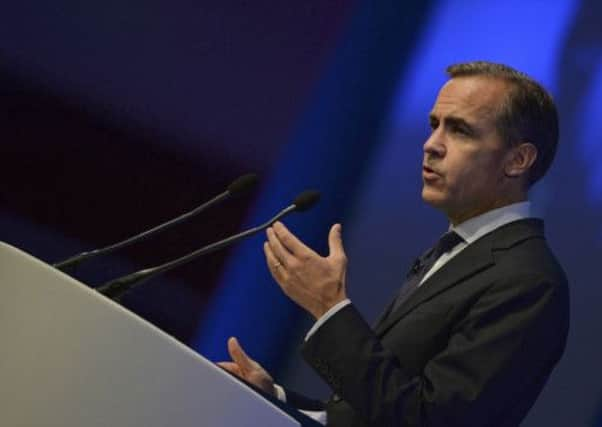UK debt woe ‘made worse by Mark Carney’


Gabay, who will address an audience at the David Hume Institute in Edinburgh, will say UK government stimulus measures aimed at easing the flow of credit could push up house prices by almost 20 per cent within the next two to three years, raising the prospects of another property crash when the taps are turned off.
Speaking to Scotland on Sunday ahead of the address, he said: “If you’ve ever tried to give up smoking, it’s painful, tedious and puts you in a bad mood. The simplest thing you can do to stop the cravings is have another fag. That’s what we’ve done – we’ve given up the rebalancing and we’re back on the fags, and we’re borrowing to pay for them.”
Advertisement
Hide AdAdvertisement
Hide AdAccording to financial charity Credit Action, average household debt, including mortgages, grew to £54,110 in July, from £54,014 the previous month, and there are growing fears that the housing market recovery, driven by the Help to Buy scheme, could fuel further rises in borrowing. The Royal Institution of Chartered Surveyors last week urged the Bank of England to impose limits on the amounts banks were able to lend to prevent property prices rising more than 5 per cent a year.
Gabay’s speech on Wednesday will come on the same day as minutes from the central bank’s latest monetary policy committee meeting are published. GDP growth is expected to have accelerated to 1 per cent in the third quarter, from 0.7 per cent in the previous three months, and while Gabay said he agreed with George Osborne’s assertion that the UK economy has “turned a corner”, he doubted whether the recovery is sustainable.
He said initiatives such as the Funding for Lending Scheme, which aims to encourage banks to make more credit available to households and businesses, has made the debt problem worse, whereas US authorities have used measures such as QE to shore up banks’ balance sheets instead. The US Treasury’s troubled asset relief programme (Tarp), launched in 2008 to buy toxic loans from banks, faced bitter opposition across the political spectrum but had recovered $272.7bn by the end of August, a profit of almost $28bn on the $245bn originally invested.
Carney has pledged to keep rates on hold at 0.5 per cent until unemployment falls to 7 per cent – which is expected to take at least three years – unless there is a risk of inflation running out of control.
The Bank governor told the treasury select committee on Thursday that he has “tremendous sympathy” for savers whose nest eggs are being eroded by inflation, which stood at 2.8 per cent in July, but his job was to make sure the economy “reaches a form of sustained velocity”.
But Gabay, a former government economic adviser and JP Morgan economist, who is now a director of economic consultancy Fathom, described the policy as “financial repression” of hard-pressed savers at the expense of those willing to borrow more. “You’re being subsidised to take on more debt and heavily penalised for trying to save,” he said.
“These short-term fixes on the demand side might flatter growth and might well help to win an election, but they won’t do anything to solve the long-term problems – if anything they’ll exacerbate them.”